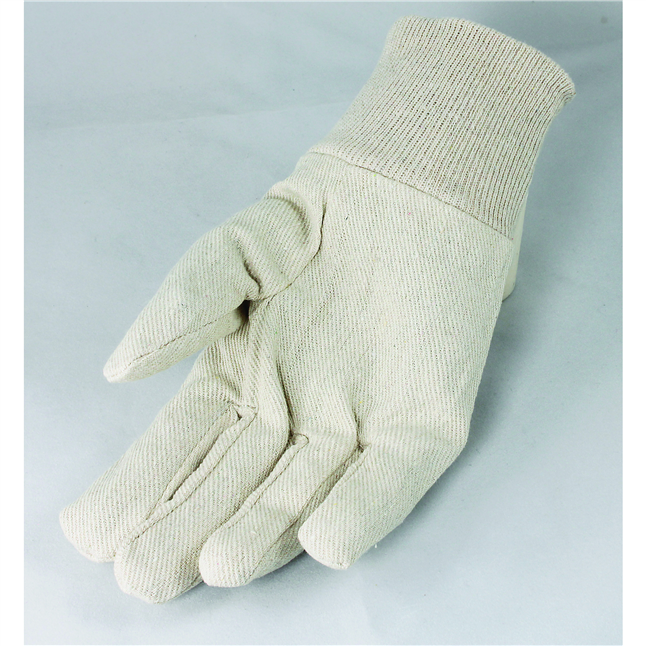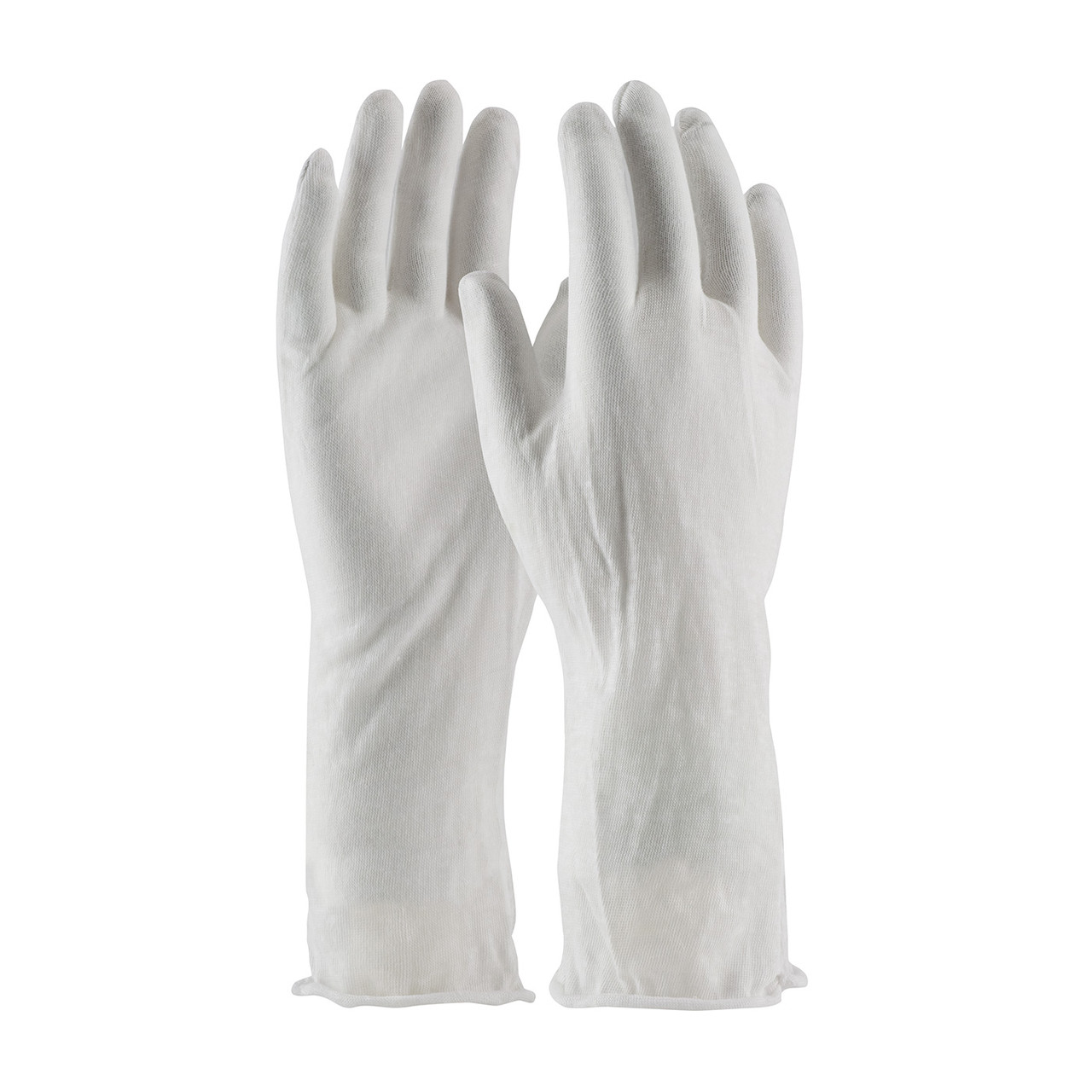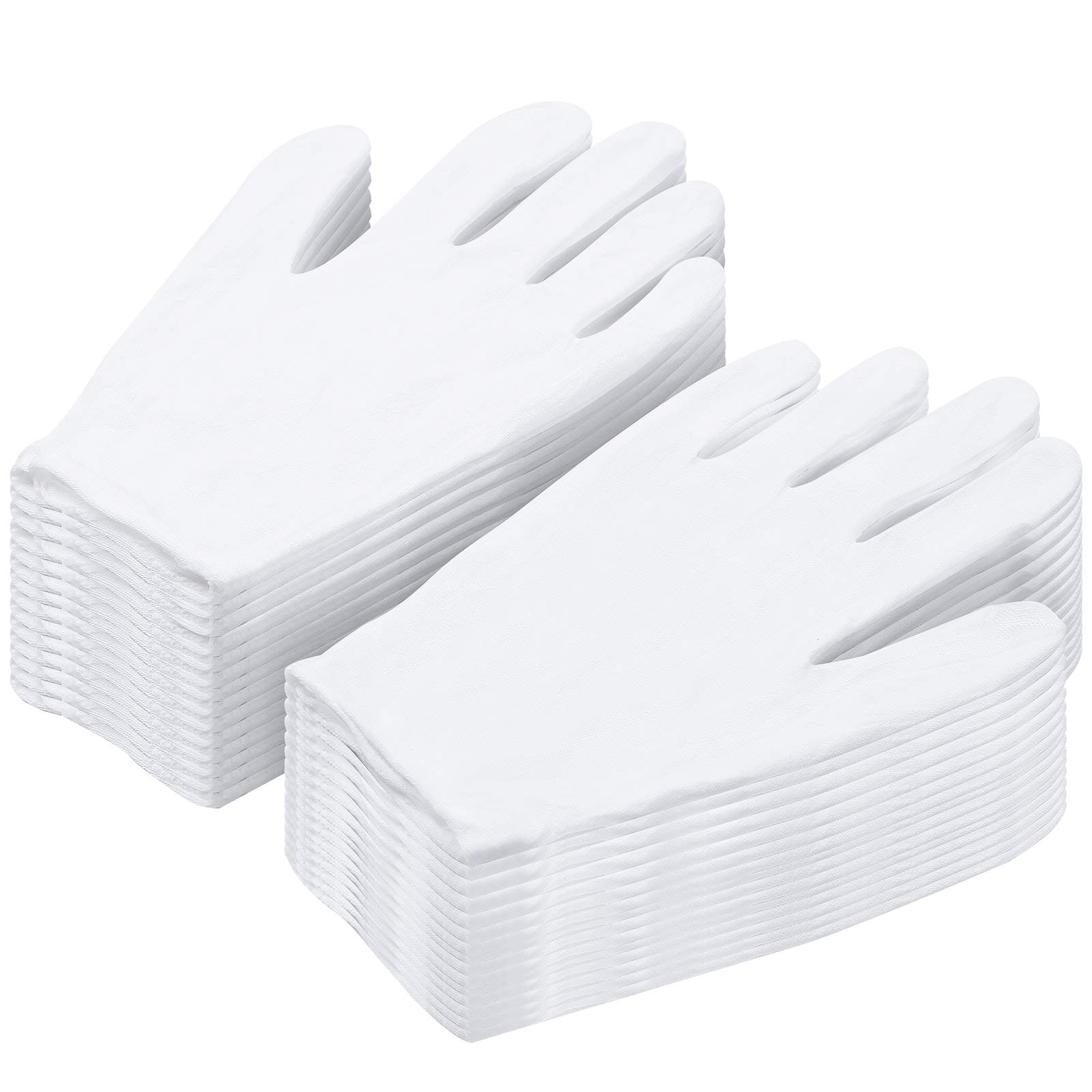Cotton gloves are a staple in various industries and everyday applications, known for their versatility, comfort, and affordability. These gloves serve a range of purposes, from protecting delicate items to providing a layer of comfort and warmth. This comprehensive guide explores the history, features, benefits, types, and best practices for using cotton glove, highlighting their indispensable role in our daily lives.

The History of Cotton Gloves
Early Origins and Usage
The use of cotton as a fabric dates back thousands of years, with ancient civilizations such as the Egyptians and Indians cultivating and crafting it into various textiles. Cotton glove, however, began to gain prominence during the Industrial Revolution. As machinery and industrial processes became more prevalent, the need for protective clothing, including gloves, grew.
In the early 19th century, cotton gloves were primarily used in labor-intensive industries, such as textile manufacturing and agriculture. Their primary purpose was to protect workers’ hands from the rigors of manual labor. The softness and breathability of cotton made it an ideal material for gloves, providing both protection and comfort.
Evolution and Modern Use
As technology advanced, the use of cotton glove expanded beyond industrial applications. In the 20th century, they became more common in healthcare settings, particularly for medical procedures that required a sterile environment. Cotton gloves offered a cost-effective, disposable solution for maintaining hygiene.
Today, cotton gloves are used in a diverse range of applications, from household chores to specialized tasks in various industries. The evolution of cotton glove has been marked by improvements in material quality, design, and functionality, making them an essential accessory for both professional and personal use.
Features and Benefits of Cotton Gloves
Comfort and Breathability
One of the primary benefits of cotton glove is their exceptional comfort and breathability. Cotton is a natural fiber that is soft to the touch, making it comfortable to wear for extended periods. The breathability of cotton allows air to circulate, preventing the hands from becoming sweaty or overheated.
This comfort is particularly beneficial in industries that require prolonged use of gloves, such as healthcare, food service, and manufacturing. Workers can perform their tasks without the discomfort and irritation that synthetic materials may cause. The natural properties of cotton ensure that these gloves remain comfortable even during long shifts.
Environmental Benefits
Cotton is a renewable and biodegradable material, making cotton glove an environmentally friendly choice. Unlike synthetic materials, which can contribute to pollution and waste, cotton breaks down naturally over time. This biodegradability reduces the environmental impact of disposable gloves.
Many manufacturers now offer organic cotton glove, produced without the use of harmful pesticides and chemicals. Choosing organic cotton glove further enhances their environmental benefits, supporting sustainable farming practices and reducing chemical exposure.
Affordability
Cotton gloves are cost-effective, making them accessible to a wide range of users. Their affordability makes them a practical choice for disposable applications, such as in healthcare and food service. Even for household use, cotton gloves are an economical option, providing reliable protection without a significant financial investment.
The affordability of cotton glove does not compromise their quality or functionality. They offer excellent value for money, delivering comfort, protection, and durability at a reasonable price. This cost-effectiveness ensures that cotton glove remain a popular choice for various applications.
Types of Cotton Gloves
Industrial Cotton Gloves
Industrial cotton gloves are designed to meet the specific demands of various industries. These gloves are often reinforced with additional materials, such as leather or rubber, to enhance durability and protection. Industrial cotton gloves are commonly used in manufacturing, construction, and automotive industries.
For example, some industrial cotton glove feature a PVC coating, providing a non-slip grip and increased resistance to abrasion. Others may include a reinforced palm or finger areas to protect against cuts and punctures. These enhancements ensure that industrial cotton glove provide the necessary protection while maintaining comfort and breathability.
Medical and Healthcare Cotton Gloves
In the healthcare industry, cotton gloves are used for a variety of purposes, from handling sterile instruments to providing a barrier for sensitive skin. Medical-grade cotton gloves are often subjected to stringent quality controls to ensure they meet hygiene standards.
Cotton gloves are hypoallergenic, making them suitable for individuals with latex allergies or sensitive skin. They provide a gentle barrier that protects the skin while allowing healthcare professionals to perform their duties with precision. Whether used in surgery, patient care, or laboratory work, medical cotton gloves are an essential tool in maintaining hygiene and safety.
Household and Personal Care Cotton Gloves
For household use, cotton gloves are a versatile and practical accessory. They can be worn while cleaning to protect the hands from harsh chemicals and abrasive surfaces. Cotton gloves are also popular for gardening, providing a barrier against dirt, thorns, and other garden debris.
In personal care routines, cotton gloves are often used to enhance the effectiveness of moisturizers and lotions. By wearing cotton glove after applying skincare products, individuals can lock in moisture and improve the absorption of beneficial ingredients. This practice is particularly useful for those with dry or sensitive skin, helping to maintain soft and hydrated hands.
Specialty Cotton Gloves
Specialty cotton gloves are designed for specific tasks and industries, offering features tailored to unique needs. For example, archival cotton gloves are used in museums and libraries to handle delicate artifacts and documents. These gloves are made from high-quality, lint-free cotton to prevent contamination and damage.
Another example is conductive cotton glove, used in electronics manufacturing and repair. These gloves are designed to dissipate static electricity, protecting sensitive electronic components from damage. The versatility of cotton glove extends to these specialized applications, ensuring that they meet the unique requirements of various industries.
Best Practices for Using Cotton Gloves
Selecting the Right Size
Choosing the right size of cotton glove is essential for comfort and functionality. Gloves that are too tight can cause discomfort and restrict movement, while gloves that are too loose may not provide adequate protection. To select the right size, measure the circumference of your hand around the widest part, usually just below the knuckles.
Manufacturers typically provide sizing charts to help users select the appropriate size based on their measurements. It’s important to consider the fit of the gloves, ensuring they provide a snug but comfortable fit. Proper sizing ensures that the gloves remain effective and comfortable during use.
Proper Care and Maintenance
Maintaining cotton glove is essential for their longevity and effectiveness. For reusable cotton glove, regular washing is important to remove dirt, sweat, and bacteria. Most cotton glove can be machine washed in cold water with mild detergent and should be air-dried to prevent shrinkage.
For heavily soiled gloves, pre-treating stains with a stain remover or soaking in a mild detergent solution can help restore their cleanliness. It’s important to follow the manufacturer’s care instructions to ensure the gloves remain in good condition. Proper care and maintenance extend the life of cotton gloves, ensuring they provide reliable protection.
Hygiene Practices
In settings where hygiene is critical, such as healthcare and food service, proper hygiene practices for cotton gloves are essential. Disposable cotton gloves should be discarded after a single use to prevent cross-contamination. Reusable gloves should be thoroughly cleaned and disinfected between uses.
In healthcare settings, gloves should be changed between patients and procedures to maintain sterility. Hands should be washed and sanitized before putting on and after removing gloves. These hygiene practices ensure that cotton gloves remain effective in protecting both the wearer and the objects or individuals they come into contact with.
Storage and Handling
Proper storage and handling of cotton gloves ensure they remain in good condition and ready for use. Gloves should be stored in a cool, dry place away from direct sunlight and moisture, which can damage the fabric. It’s important to keep gloves clean and free from contamination by storing them in a designated container or drawer.
Avoid folding or crushing the gloves, as this can cause wrinkles and damage the material. Gentle handling and regular inspection for wear and tear ensure that the gloves remain effective and comfortable. Proper storage and handling practices extend the life of cotton gloves and maintain their performance.
Environmental Impact and Sustainability
Biodegradability of Cotton
One of the significant environmental benefits of cotton gloves is their biodegradability. Unlike synthetic materials, cotton breaks down naturally over time, reducing its impact on landfills and the environment. This biodegradability is especially important for disposable gloves, as it ensures that they do not contribute to long-term waste.
The natural decomposition process of cotton is going to facilitate with microbial activity, which breaks down the fibers into organic matter. This process is environmentally friendly and contributes to a more sustainable waste management system. The biodegradability of cotton gloves makes them a responsible choice for environmentally conscious consumers.
Organic Cotton and Sustainable Practices
The use of organic cotton in glove manufacturing further enhances their environmental benefits. Organic cotton is going to grow without the use of harmful pesticides, herbicides, and synthetic fertilizers. This sustainable farming practice reduces chemical runoff, protects soil health, and supports biodiversity.

Choosing gloves made from organic cotton supports sustainable agriculture and reduces the environmental impact of cotton production. Additionally, organic cotton farming often involves fair labor practices, ensuring that workers are going to treat ethically and paid fairly. By opting for organic cotton gloves, consumers can make a positive impact on both the environment and the communities involved in cotton production.
Reducing Environmental Footprint
The production and disposal of synthetic gloves contribute to environmental pollution and waste. By choosing cotton gloves, individuals and industries can reduce their environmental footprint. Cotton gloves offer a renewable and biodegradable alternative to synthetic materials, supporting a more sustainable approach to glove use.
Incorporating cotton gloves into workplace and household practices can significantly reduce the reliance on synthetic materials. This shift promotes environmental responsibility and aligns with broader efforts to reduce plastic waste and support sustainable materials. The environmental benefits of cotton gloves make them a responsible choice for eco-conscious consumers.
Conclusion: Embracing the Versatility of Cotton Gloves
A Valuable Accessory
Cotton gloves are a valuable accessory that offers comfort, protection, and versatility. Their unique properties make them suitable for a wide range of applications, from industrial settings to personal care routines. The history, features, and benefits of cotton gloves highlight their indispensable role in various industries and everyday tasks.
Supporting Environmental Sustainability
The environmental benefits of cotton gloves, including their biodegradability and the use of organic cotton, support sustainable practices. By choosing cotton gloves, individuals and industries can reduce their environmental footprint and contribute to a more sustainable future. The combination of performance and environmental responsibility makes cotton gloves an excellent choice for eco-conscious consumers.
Enhancing Everyday Comfort and Safety
Cotton gloves enhance everyday comfort and safety, offering a reliable barrier against dirt, chemicals, and other hazards. Their breathable and soft material ensures that they remain comfortable even during prolonged use. By selecting the right size, maintaining proper care, and following hygiene practices, users can maximize the benefits of cotton gloves.
In conclusion, cotton gloves are a versatile and essential accessory that combines comfort, protection, and environmental responsibility. Their historical significance, modern applications, and environmental benefits make them a valuable addition to various industries and household routines. Embrace the versatility and benefits of cotton gloves and experience the difference they can make in your daily life.



